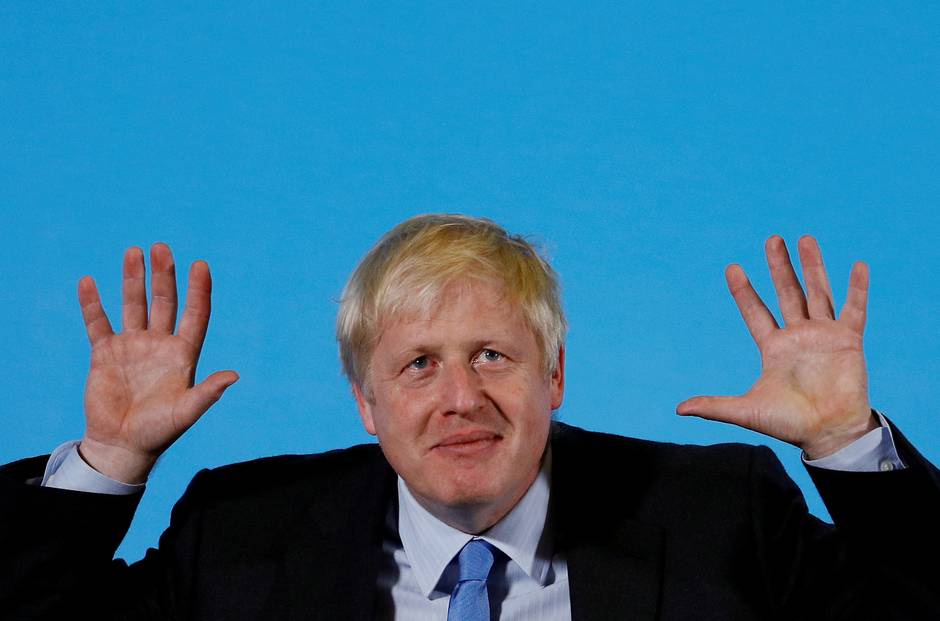My colleague purses her lips, as if beginning to formulate a question, but then hesitates. She then pauses, looks briefly down at her feet, and then whilst smirking, asks the inevitable but personally dreaded part of every conversation with a co-worker in Belgium; “So WTF is happening with Brexit?”
I can normally tell from her momentary hesitation or grin that the question is about to be asked. It is something, since the date of the referendum in June 2016, which has become fairly routine in every office interaction. As the only Brit in the department, it is just something I have come to expect. I don’t even mind and, If I’m honest, enjoy having the chance to discuss it. Only this time the question was actually not about Brexit, but rather, “Is Boris Johnson really going to become Prime Minister?”
The question is a recognition of what is actually a relatively surprising turn of events, with Boris Johnson almost undoubtedly set to succeed Theresa May and become Prime Minister later this week. It is something which would have seemed unlikely even at the beginning of this year, let alone 5 years ago.
Only in January, a pathway for Boris to the leadership through the conservative parliamentary party, whose nominations he required to become leader, seemed difficult. Arguably, without the rise of Nigel Farage’s latest project, the Brexit party, that path would still have been challenging. Seeing Johnson as a proven electoral success due to his time as Mayor of London, his rise is seemingly a last ditch act of desperation by Tory MPs to secure their electoral base from its current threat.
So what do we know about our new Prime Minister? Tellingly, Boris Johnson’s reputation with those who have worked the most closely with him is dismal at best. Fellow Tory MP Sir Alan Duncan, who worked with Boris Johnson whilst he was foreign secretary, referred to him as “a circus act”. His former boss, Sir Max Hastings, wrote of Johnson that he is “utterly unfit to be Prime Minister” and a “cavorting charlatan”. Strong praise from those who should know him best..
Beyond his reputation with colleagues, the strike list against Boris Johnson is eye wateringly long. He has been forced to resign due to deceit on more than one occasion. He has reportedly been involved with the organising of a fellow journalist to be assaulted, referred to Muslim women as “letter boxes”, gay men as “tank topped bum boys” and black people as “picaninies”. Surprisingly, given the veracity of the British press, it is reportedly not even known how many children he has fathered and from whom.
An important event in understanding Johnson is the date he resigned from Theresa May’s cabinet. He quit in protest at the withdrawal agreement, even though he would later vote for it after Theresa May indicated she would resign. On the date of his resignation he left fellow foreign ministers from EU and Balkan states waiting for his presence at a meeting the UK had organised. The summit was prepared to discuss the security and future of the Balkan region. But Johnson never turned up. He chose instead to go and have his portrait taken in the grand setting of the foreign office. In typical Boris style it was to accompany the front page article he was about to publish announcing his departure the following day.
The event is a perfect illustration of the driving forces behind him, both ambition and vanity. He wanted to use the setting of the Foreign Office to appear statesmanlike, but by abandoning such an important meeting, made it crystal clear how he was not.
Clearly in many of these instances, context matters. Boris Johnson has defended many of these criticisms as “satire” and argued that they have been taken heavily out of context. The problem is, as Boris Johnson knows, people rarely care about context. If you are having to explain yourself, you are not winning. Impressions matter and the aforementioned strike list is the impression many people at home and also abroad will have of Johnson. What makes it difficult for me, as a Brit in Belgium, is that this is the impression they may take not just of him, but us.
In some sense then, I do wish my colleague had asked me about Brexit. I voted remain, but have always been relatively Eurosceptic in the traditional sense. I have many criticisms of the European Union, but they are about it’s various responses to different crises and overall direction, not membership. Whilst the Brexit process has often been unedifying for the UK, and therefore me as a Brit, it is about genuine disagreements from which we can have a discussion, which I enjoy.
Boris Johnson, on the other hand, is not. His rise is a sign of desperation from the Conservative party and a marker of just how little political talent and leadership there currently is in British politics. His rise is, therefore, just embarrassing. He is, to put it rather crudely, one BJ I wish we could all forget.
Sam Jenkinson


